Amritsar is synonymous to the Golden Temple, the holiest Sikh temple, which has been welcoming people from all walks of life and faith since 1604. The majestic structure was gleaming in the October sun and its refection in the holy tank was a sight to behold. It was far better than I had imagined. I stood still just soaking in the grandeur. It exuded an aura that sought reverence.
As I trundled along the temple bare feet with an orange headscarf covering my head, I felt one with the other devotees. We passed through the devout Sikhs taking a holy dip in the tank oblivious to the crowd around; people sitting and meditating; and not to mention the hordes of tourists who were in awe of the structure and clicking pictures away.
The ideal time to visit the temple is during the Palki Sahib ceremony. It is at this event that the Granth Sahib, the holy book of the Sikhs, is taken from Hari Mandir, which is the main shrine, to the sanctum, where it is kept till the next morning. When it is illuminated at night, people say you cannot take off your eyes from the sight. Unfortunately, I had to miss the spectacle as I was visiting the city just for a day.
The temple accommodates devotees, who seek shelter on its premises for free. Rooms are also available for a nominal fee of Rs 50. Around 40,000 pilgrims/ visitors sit together at the Guru-ka-langar or community meal every day. The volunteers varying from rich and poor, come together to make chapatis and dal and serve the devotees, wash the dishes, all without a whimper. Nowhere will you find such camaraderie amidst 40,000 people. It is commendable how the institution of community kitchen initiated by Guru Nanak has been strictly upheld even till today.
I stepped out of the temple and headed straight to quench my thirst with the ubiquitous lassi that Amritsar is known for. My next destination was Jallianwala Bagh, a memorial of great national significance. In the April of 1919, thousands of people came together to celebrate Baisakhi, the Punjabi New Year. As the meeting was in progress, Brigadier-General Dyer came armed with his troops and ordered them to open fire without any warning. As the buildings had narrow entrances, people could hardly escape. The bullet marks evident even today stand testimony to the turning point in India’s freedom struggle. I explored the museum and looked around for an hour or so before heading to my next destination, the Vaishnodevi Mandir, which is a replica of the Vaishnodevi Mandir in Jammu and Kashmir.
En route to the Wagah Border, which is about 25 km away from the city, I had a sumptuous lunch at a roadside dhaba. The finger-licking vegetarian fare that I had there is something I always crave for. If you want to catch the border ceremony, head to this place post-noon. You will be there just on time for the beating retreat ceremony between India and Pakistan. Cars or buses are not allowed after a certain point. You will have to walk at least a kilometer to reach the border. Once you are there, it is a scene of chaos; people jostling to get up the stairway to get the best glimpse of the ceremony. Men are supposed to form a separate queue from the women folk. Take care of your camera and wallet, as you will have to move along with the crowd.
The enthusiastic crowd at the beating retreat ceremony in Wagah Border
As the ceremony began with chants of ‘Vande Mataram’ and all the patriotic numbers from Bollywood were played, people started swaying to the music. This gave me a sense of solidarity. The ceremony ended with much fanfare, as even schoolchildren from the crowd participated in the event.
On my way back, my cab driver took me to the Kapra Market where I indulged in some retail therapy. You can get the best Amritsari juttis, phoolkari dupattas, suits and bags in the market. A visit to the city is incomplete without filling your bag with these goodies.
Juttis up for sale at the market
This city is also known for its street food. Sample the parathas, Amritsari kulchas, pakoras, sweets and lassi sold in pushcarts. You will leave the place wanting for more.
Where to stay:
There are several budget as well as luxury hotels for tourists. You can try out the Golden Tulip Amritsar (Tariff — Rs. 3,500), HK Clarks Inn (Tariff — Rs. 2,800) and Country Inns and Suites (Tariff — Rs. 2,800). For those of you looking for hotels within Rs. 1,000, you will find them as well. Singh International Hotel (Tariff — Rs. 900), Grace Hotel (Tariff — Rs. 900) and Veenus International Hotel (Tariff — Rs. 800) are some of the options which are worth trying.
Getting There:
Travelling by bus from cities like Delhi, Chandigarh and Patiala is a good option. Buses to Amritsar are available from all these cities. If you have travel plans for the city, look up for your bus tickets at TicketGoose.com.
The next time you want to visit a temple town, think Amritsar. From visiting the temples to sampling the food and shopping, you will not regret one bit.
The next time you want to visit a temple town, think Amritsar. From visiting the temples to sampling the food and shopping, you will not regret one bit.
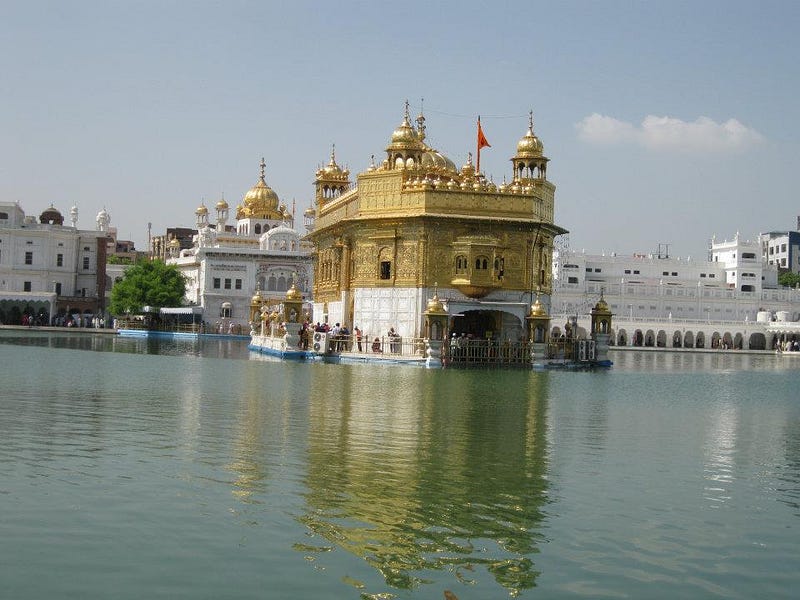
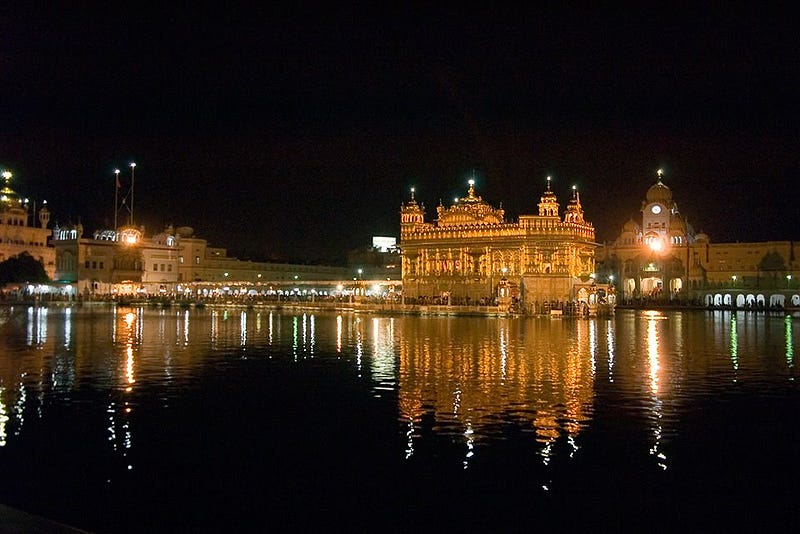
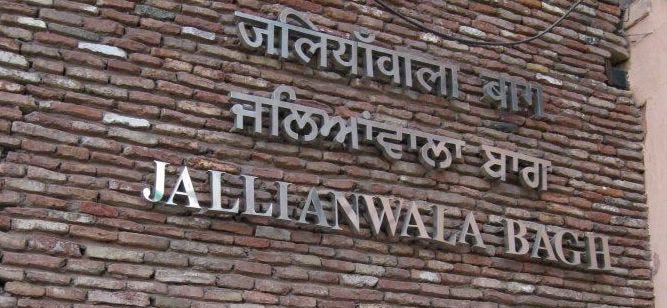
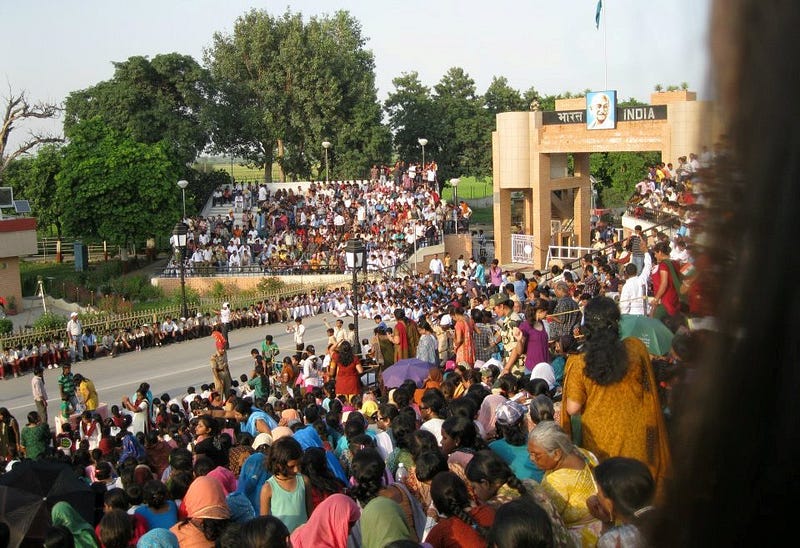
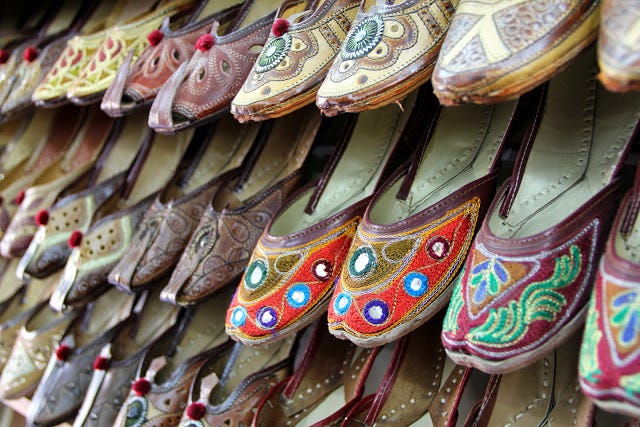
No comments:
Post a Comment